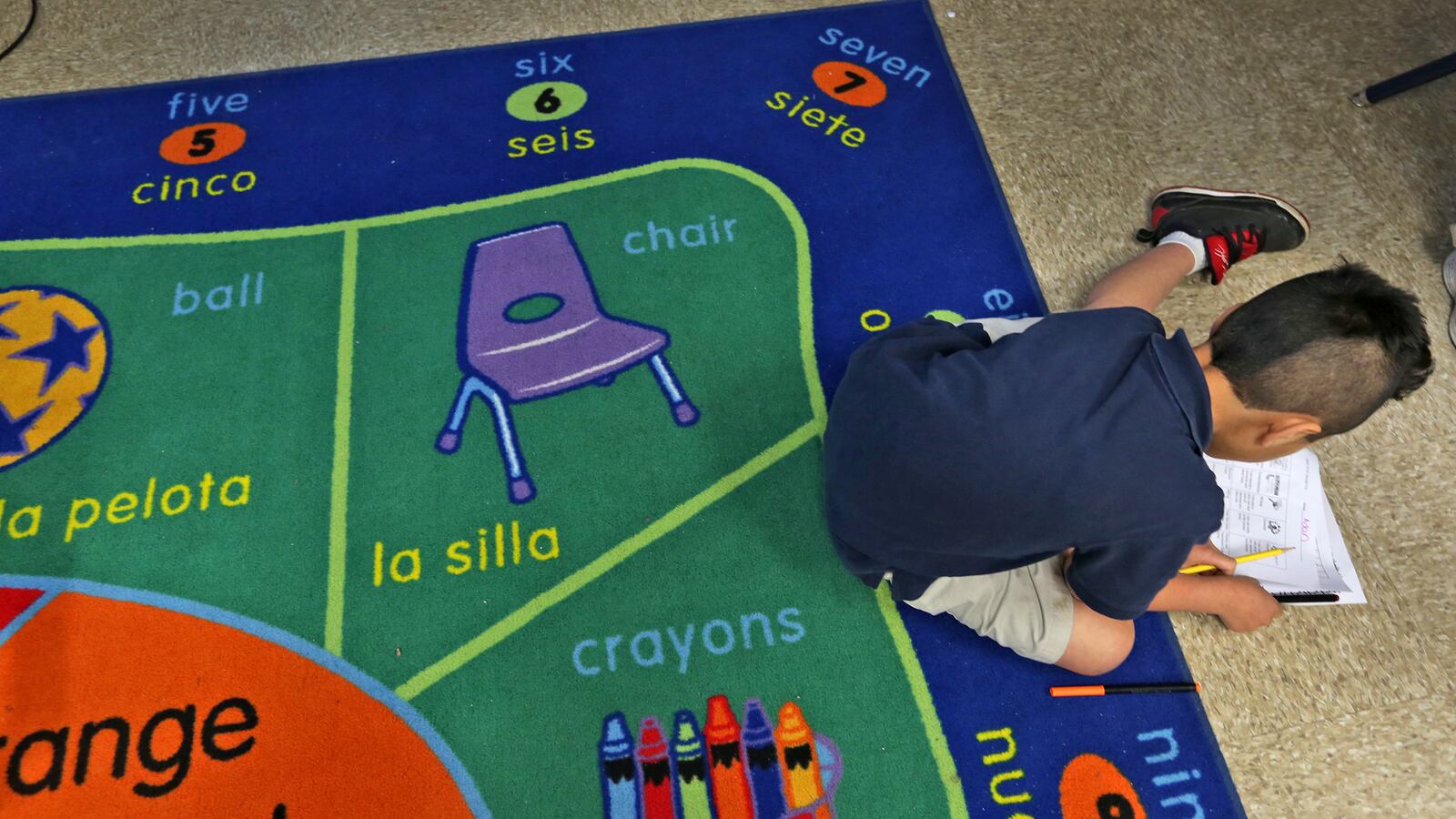Tennessee lawmakers voted this year to give local school districts more funding for the state’s growing population of English language learners.
Now, the state’s lawyers say Tennessee doesn’t have to follow through on its own plan.
At a hearing Friday at the Davidson County Chancery Court, attorneys for the state and Metropolitan Nashville government faced off on the issue, the latest development in a series of legal challenges by local districts over education dollars from the state.
Metro Nashville Public Schools, which serves about a third of the state’s ELL population, is seeking a court order demanding that the state provide the district with funds promised under its recently revised funding formula known as the Basic Education Program, or BEP.
State lawmakers voted this year to increase ELL funding based on a 1:20 student-teacher ratio instead of the previous 1:30 ration, but only provided Nashville with money for a 1:25 ratio. That’s about $4 million short of what was promised this school year, say Nashville school leaders.
Attorneys for the state say Tennessee isn’t obligated to follow through with its own spending plan — and that Nashville doesn’t have the grounds to seek the order in the first place.
Chancellor Claudia Bonnyman is scheduled on Sept. 26 to decide the matter. She can issue the order, deny the city’s petition, or instruct Nashville to refile its challenge as a declaratory suit, as two of Tennessee’s other large school districts have done. Should she side with Nashville, she’d likely give the state a long deadline that allows the legislature to appropriate the additional funds at its session next year.
The state says Tennessee isn’t legally required to follow the BEP, and that it provided Nashville with enough money for now, with intentions to phase in more funding eventually to meet the new BEP ratio. It says Nashville cannot prove it has a right to the additional funding, and that the courts cannot compel the legislature to appropriate more money.
Nashville’s Sept. 1 petition differs from the lawsuits spearheaded last year by Shelby County Schools in Memphis and Hamilton County Schools in Chattanooga, because it directly demands the state to pay based on the BEP formula. The other districts’ lawsuits charge that the state isn’t adequately funding public education in Tennessee and ask the court to decide what districts have a right to receive, potentially impacting districts statewide.
In its response to Nashville’s petition, the state says Nashville should follow the other districts in asking the court to address their right to education funding, rather than for a direct order to pay more money. “(Nashville) seeks a writ of mandamus that would require the General Assembly to provide funding to ELL teachers and translators in the ratios provided in (Tennessee Code),” the response reads. “… However, (Nashville) is not entitled to that writ.”
Nashville’s lawyers countered that a court order is appropriate, and that its funding case is different from those of the other large districts.
At the heart of the other lawsuits is the question of the BEP’s adequacy. Nashville’s lawyers say they’re willing to maintain for now that the state’s current funding plan is adequate; they’re just demanding that the state comply with it.
“What (the state’s lawyers) fail to understand is that (Nashville) accepts, for purposes of this lawsuit, the BEP in its current form — but demands (the state) live up to the Supreme Court’s directive that the BEP is fully funded,” Nashville attorneys wrote in their response to the state’s objection filed this week.
A 1995 Tennessee Supreme Court decision declared that the state must fund the BEP regardless of revenue.
Shelby County Schools’ case against the state is currently in discovery, meaning both sides are gathering evidence and building their cases for trial. Hamilton County’s case is also continuing since Bonnyman denied the state’s request for dismissal.

